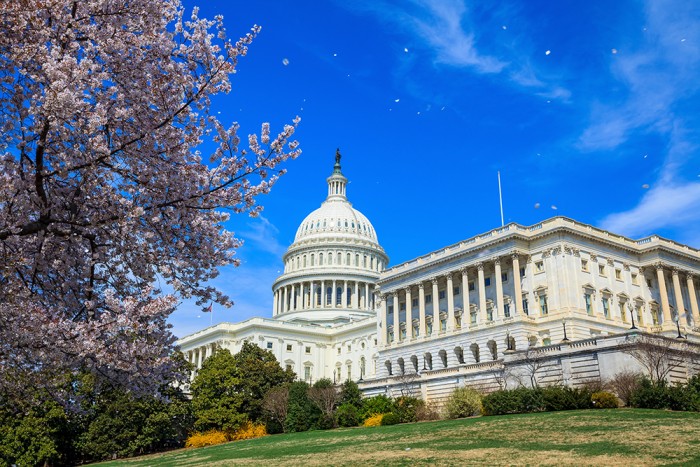RCPA and Coalition of Critical Services Providers Urge End to Budget Impasse
As a proud member of The Coalition of Critical Services Providers, RCPA has joined providers from across the Commonwealth in appealing to Governor Shapiro and the Pennsylvania General Assembly, urging legislators to pass a final state budget that invests appropriately in health and human services, before there are no providers left to care for Pennsylvania’s most vulnerable. The Coalition of Critical Services Providers is a group of advocates made up of associations representing for-profit, nonprofit, and county-based organizations dedicated to delivering critical services throughout the Commonwealth.
To support this effort, The Coalition will be holding a press conference on Thursday, October 2, 2025 at 9:00 am in the Capitol Rotunda in Harrisburg. The event will feature speakers calling for an immediate budget resolution, to ensure vital services for residents can continue across the Commonwealth as the Pennsylvania budget impasse enters its fourth month. Among the speakers will be RCPA staff and members, along with other Coalition members and organizations.
The Coalition recently surveyed organizations representing all 67 counties in Pennsylvania. The survey found the ongoing Pennsylvania state budget impasse is having profound, real-world impacts on children, families, older adults, and service provider employees, as counties and organizations struggle to provide services due to lack of funding. The prolonged budget standoff further threatens the security and well-being of Pennsylvanians as we enter October. The Coalition will share the survey findings and impact information shortly.
RCPA urges our members to be a part of the event next Thursday in Harrisburg. If you plan on attending, please contact RCPA COO and Mental Health Services Director Jim Sharp. Additional details and information will be communicated to members.
WHO: The Coalition of Critical Services Providers, RCPA Members, Advocates, and Stakeholders
WHEN: Thursday, October 2, 2025, 9:00 am – 10:00 am
WHERE: Harrisburg State Capitol Rotunda, 501 N 3rd Street, Harrisburg, PA 17120
About the Coalition
The Coalition includes providers from for-profit, nonprofit, and county agencies dedicated to delivering critical services throughout the Commonwealth. The members include: Community Action Association of Pennsylvania; Feeding PA; Hunger-Free PA; Pennsylvania Association of Area Agencies on Aging; Pennsylvania Association of Nonprofit Associations; Pennsylvania Council of Children, Youth and Family Services; Pennsylvania State Alliance of YMCAs; Pennsylvania Head Start Association; Pennsylvania Association for the Education of Young Children; Pennsylvania Coalition to Advance Respect; and Rehabilitation and Community Providers Association.
RCPA Drafts Letter to Urge Ending the Budget Impasse, Seeks Support From Members
RCPA Shares PA Budget Impasse Update
As of today, September 18, RCPA is reporting to members that the budget impasse unfortunately remains unchanged after 80 days. As this week comes to a close, it does not appear there will be action to move the budget process forward.
The Senate currently remains on 24-hour call, with their next scheduled session days October 20 – 22. The House has their first scheduled Fall session set for September 29 – October 1.
Every day that passes without a budget is another day of uncertainty for:
- People with disabilities, who rely on base-funded supports to live, work, and thrive in their communities;
- Individuals and families in recovery, whose access to care depends on consistent funding and provider stability;
- Children and adults facing mental health challenges, who can’t wait weeks — or months — for the services they need today;
- Human service professionals, who are burning out, underpaid, and leaving the field in record numbers;
- County governments, who administer core safety net services and are already preparing to withhold payments due to the impasse; and
- Nonprofit organizations and service providers, who operate on tight margins, front the cost of services, and risk financial insolvency without reimbursement.
We thank our members for their participation in the recent State Budget Impasse Survey that was organized by agencies, associations, and providers to collect data regarding both the current and projected impact on both for-profit and nonprofit financials, staffing, and ultimately those served. We will continue sharing information with all entities involved so that the survey results can be analyzed and disseminated to the media and legislative contacts most efficiently.
You can also view this article from Spotlight PA, which provides a good overview of where the PA General Assembly caucuses stand and what is causing the impasse to continue.
If you have any questions or concerns, please contact your respective RCPA Policy Director.
Pennsylvania Providers Feel Pinch From Another State Budget Delay, RCPA President & CEO Richard Edley Quoted
Nearly Two Months Into Stalemate, Shapiro Says a Budget Is Close; Really, This Time
Life Goes On: Why Pennsylvania Lawmakers Are in No Hurry to Make a Budget Deal Nearly Two Months After the Deadline
Last Call for the RCPA Fall Golf Outing on September 8!
Don’t miss your chance to golf with your colleagues for a good cause! RCPA will be hosting our Fall Golf Outing to support the RCPA PAC on Monday, September 8, 2025, in conjunction with the Annual Conference. Conference attendees, exhibitors, sponsors, and presenters can now register to participate in the RCPA PAC’s Golf Outing at the Colonial Golf & Tennis Club at 4901 Linglestown Road, Harrisburg, PA 17112. Registration and lunch will be held from 11:00 am – 12:00 pm, with the shotgun start beginning at 12:00 pm.
Sponsorships are available for this worthwhile cause. We hope you will consider becoming a golf outing sponsor; it is a great way for your organization to receive name recognition as well as an opportunity to support the RCPA fundraiser!![]()
Not a golfer but would still like to support the RCPA PAC? For your convenience, you can now make a personal online contribution, which will provide financial support to state legislators or representatives who have demonstrated a strong, consistent, and positive interest in our legislative priorities. If you are interested in learning more about the RCPA PAC or donating, please visit our website, download the PAC FAQ Card and Donation Card, or email Jack Phillips, Director of Government Affairs.
See you on the golf course! If you have any questions regarding registration, please contact Christine Tartaglione.
Advocate for Yourself at the National Council Hill Day; RCPA to Lead Pennsylvania Delegation
National Council’s Hill Day event will span two days, with a Public Policy Institute Program on October 7 at the Omni Shoreham Hotel, and meetings on Capitol Hill slated for October 8. This is a unique opportunity to connect with colleagues from across the country and share your important stories directly with the people who represent you in Washington, D.C.
Last year, RCPA members received the opportunity to learn and develop their lobbying skills through the Public Policy Institute sessions and put them to work meeting with Pennsylvania legislators in a series of meetings and roundtables. The experience was invaluable and created a pathway to advocating in their home districts and events like the RCPA Capital Day.
While Hill visits are open to all, space will limit the Public Policy Institute to 400 registrants.
As RCPA will once more serve as Team Captains for the Pennsylvania delegation, we ask that, when you register, you also contact RCPA COO Jim Sharp. RCPA will be coordinating and communicating with members as the event proceeds.
Register Here
Attendees are responsible for their own travel and lodging; however, hotel rooms can be booked through the Omni Shoreham Hotel at a discounted group rate once you have registered. Group transportation between the hotel and Capitol Hill will be offered at set times.
Note on potential shutdown: If Congress does not reach a spending agreement by September 30, there may be a government shutdown starting October 1. D.C. offices will remain open, however, and staff meetings can still occur. More updates will be provided if a shutdown appears likely.
More details will be forthcoming. We look forward to seeing you there!
Questions:
- Hill Day 2025 Website
- Public Policy Institute, Hill Meetings, or Legislative Asks: Email
- Logistics or Other Inquiries: Email

















